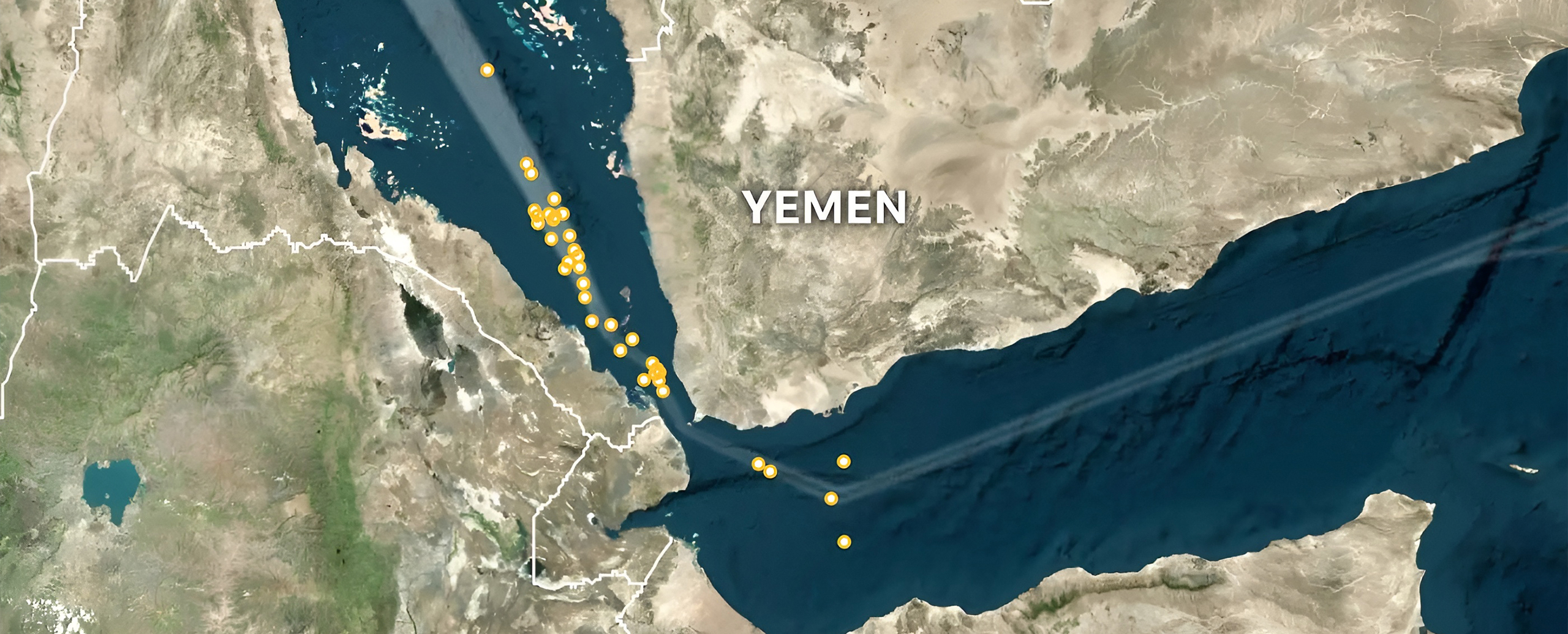Security Threats in the Red Sea and Their Impacts on Maritime Transportation
The Red Sea lies south of the Suez Canal, a strategic transit point for world shipping. Due to its location, sinceDecember, attacks by the Houthis in Yemen on all ships sailing through the Babu al-Mandeb Strait to Israeli portshave had a major impact on international trade. These attacks were often carried out using missiles and drones.Initially, the targets were predominantly commercial ships heading to Israeli ports; however, the threat to tradefurther escalated as vessels flagged with the flags of other countries, unrelated to Israel, also came underattack. This expansion of targets to include ships from nations with no connection to Israel heightened the threatto maritime commerce.
More specifically, the conducted attacks have also impacted leading companies and industry leaders. Major oilcorporations such as BP have suspended shipping operations through the Red Sea, and similarly, prominentshipping companies like Maersk, Hapag-Lloyd, and MSC have decided to avoid using the Red Sea.
Faced with the threat, shipping companies have two options: to navigate the risk and increased insurance costsassociated with the passage through the Red Sea or to redirect their ships elsewhere. However, both optionscarry a high-cost risk; shipping through the Red Sea increases insurance expenses, while redirecting vessels toaround Africa introduces the risk of delays. Notably, there has been a significant increase in war risk insurancepremiums due to these reasons. At the beginning of December, it constituted only 0.07% of a ship’s value, but inrecent days, this ratio has risen to between 0.5% and 0.7%.
When it comes to the legal aspect of the attacks, BIMCO’s CONWARTIME or VOYWAR clauses provideshipowners and charterers with flexibility in determining how to act in certain situations. Under the scope ofVOYWAR 2013, before the commencement of loading, Cargo Owners may cancel the charterparty or refuse toperform it if, according to the Mater’s decision, the Ship, cargo, crew, or other persons on board would beexposed to War Risks. Cargo Owners should first afford Charterers an opportunity to nominate an alternativesafe port for loading or discharging. If exposure to War Risks arises after the commencement of loading, CargoOwners may notify Charterers that a longer route will be taken (if the total additional distance exceeds 100nautical miles, Cargo Owners may have the right to additional freight).
While BIMCO’s CONWARTIME or VOYWAR clauses aim to establish a fair balance between the parties, theyalso prioritize the safety of the ship, crew, and cargo. Therefore, shipowners, in light of the threats posed by theHouthi rebels in the Southern Red Sea, should review the War Risks clauses and carefully assess their routes toavoid jeopardizing their vessels.





Leave a comment